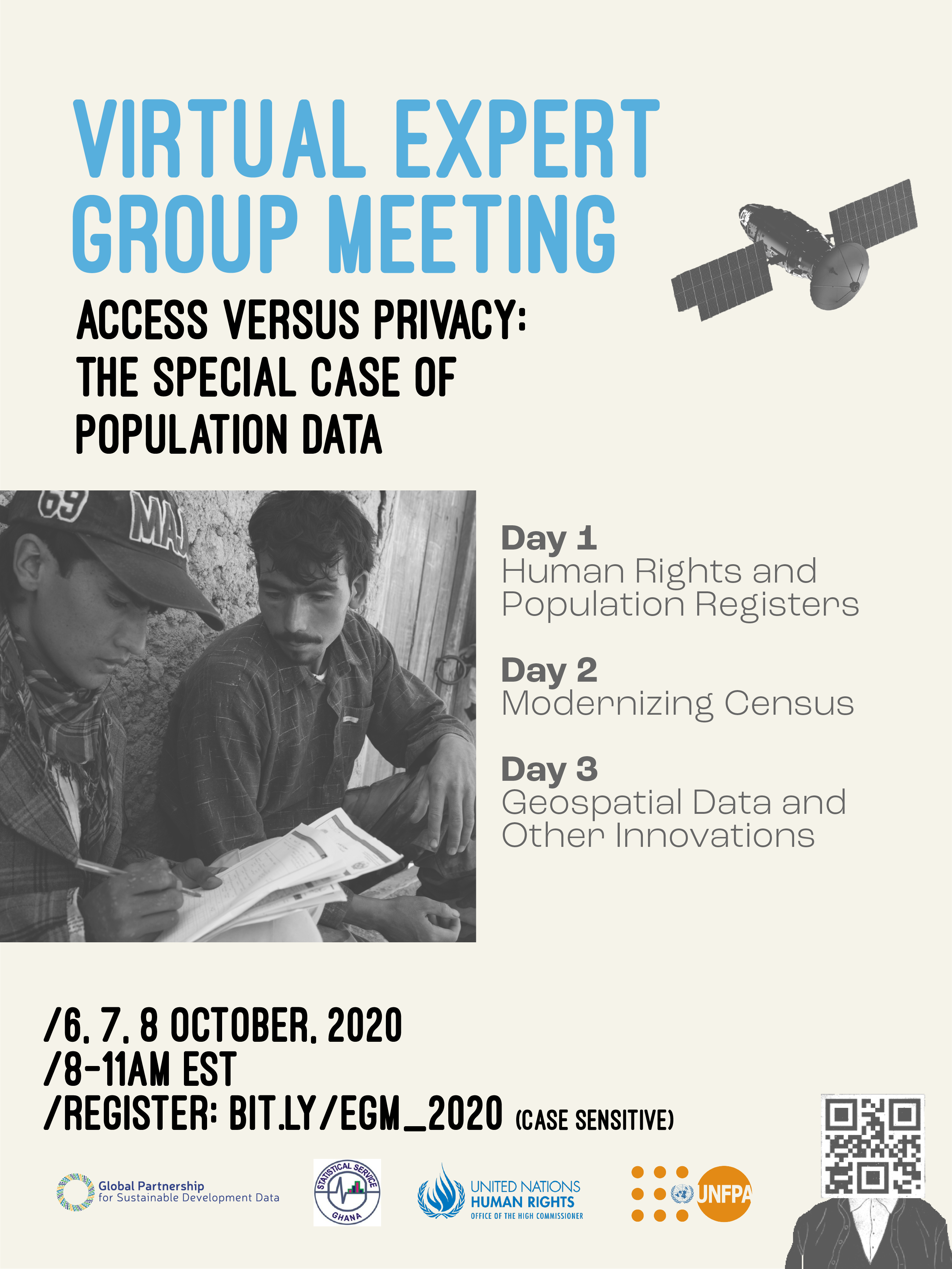UNFPA, in partnership with the Global Partner for Sustainable Development Data, Statistical Service Ghana and the Office of the United Nations High Commissioner for Human Rights will co-host a three-day virtual event bringing together technical experts, academics, and the general public to discuss the topic of Access versus Privacy: The Special Case of Population Data. The meetings will take place from 6-8 October 2020 at 8:00-11:00 EDT.
Register at bit.ly/EGM_2020 to attend the event and view the full agenda to learn more about the sessions and the speakers.

COVID-19 has underscored the tremendous importance of comprehensive and high-resolution population data, as critical for governments to anticipate vulnerabilities, and to target preparedness and response actions. The emergence of contact tracing for COVID-19 sharply highlights the intersection between societal benefits of population data, and potential privacy concerns. In this, COVID-19 reinforces the priority of modern population data for national resilience to any health crises, and the need to simultaneously promote access to ever more granular population data for health and development, while protecting personal data and privacy.
At the 2019 Nairobi Summit celebrating the 25th anniversary of the International Conference on Population and Development (ICPD), partners convened a Signature Session on “Democratizing Data for Development” - highlighting emerging tensions between the need for greater access to population data, and the simultaneous need to strengthen protections on data privacy.
This tension is the focus of this Expert Group Meeting. While the ‘data revolution’ has been widely embraced, governments are at very different stages in developing and adopting relevant data governance systems, i.e. legislation on data privacy. Concerns over unregulated data privacy are hindering public access to critical census, registry and survey data in countries.
As long as these tensions are unresolved, the development potential for modern population data cannot be realized. Geospatial data offer transformative potential to support decision-making in a wide range of areas from health service delivery to business planning. IT systems offer unprecedented capacity to integrate data across multiple sources - for example, linking individual records from health, social welfare, and economic assistance to construct a registry-based census, or a population register. Biometrics are increasingly integrated within population data as part of modern legal identity systems, and have the potential to validate census and other population data.
Realising the development potential of such new population data opportunities demands equal attention to the development of robust, nationally tailored data governance. These are crucial to protect the safety and security of individuals, particularly for vulnerable populations and minorities - so that data can be accessible to many, but risky to none.
Expertise and common guidelines for how to deal with data privacy is therefore a high priority in the context of strengthening population data for development.





